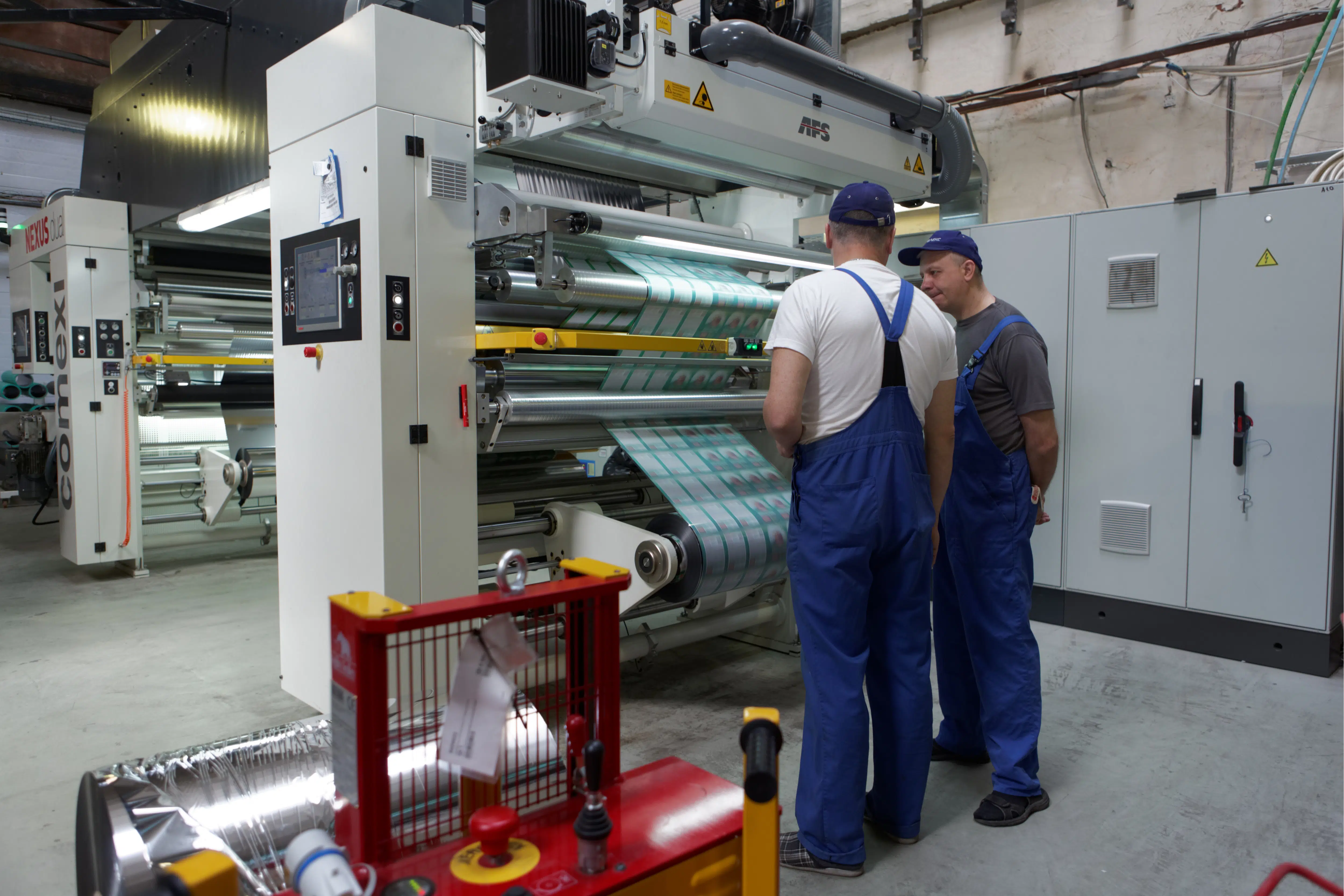Dynamic Scheduling in Flexible Packaging Manufacturing

Flexible packaging represents a major cross-section of all packaging production, seeing use for countless products and applications. With widespread use in everything from snack foods to pharmaceuticals and anything in between, flexible packaging production is a highly competitive industry where manufacturers face many unique challenges.
The specific steps in any flexible packaging factory can vary, but they generally come down to three distinct processes.
- Extrusion of the flexible packaging material
- Printing of the design ordered by the customer
- Slitting the packaging material for use by the customer
Each of these steps carries its own hurdles to overcome, along with the challenging task of coordinating operations between the three. A flexible packaging factory needs to have the individual steps working properly to ensure consistent product quality to attract and maintain customers. The coordination between the steps is just as important, reducing costs, eliminating waste, and ensuring fast turnarounds on orders.
Companies need access to reliable, real-time information on their flexible packaging products operations if they’re going to succeed. Being able to monitor and understand the process as it’s happening will give manufacturers the ability to the most significant challenge they face – bottlenecks.
Contending With Bottlenecks in Packaging Production
Like in any other industry that relies on a series of sequential processing steps, flexible packaging production has to contend with bottlenecks. When individual steps within the process aren’t operating at the same rate, you’ll eventually have partially processed stock stacking up or machines sitting idle. Both of these situations are bad for business and need to be dealt with swiftly.
There are several key reasons behind bottlenecks in any production environment.
- The process might not have been properly designed. If the initial design of the factory can extrude more flexible pack material than the printing machines can handle, then there’s going to be a bottleneck at the printers.
- A lack of proper maintenance can lead to machines working far below their design capacity, eventually leading to bottlenecks. Unexpected events that take machines offline or reduce capacity can also create bottlenecks.
- When manufacturing flexible packaging, it’s possible that poor scheduling is behind the bottleneck. While there is sufficient machine capacity to increase production and decrease turnaround times, orders aren’t being processed in the most efficient way.
Manufacturers can often struggle to identify bottlenecks and implement effective solutions, especially where the cause isn’t immediately clear. Making adjustments to production in real-time can be even more challenging.
The Power of Dynamic Scheduling
The nature of flexible packaging production makes it a poorly suited process for planning and optimization ahead of time. Many manufacturing processes are made to stock, creating products to meet expected demand. This makes it possible to thoroughly optimize production schedules before they begin. Flexible packaging, on the other hand, is made to order.
Because the printed packaging is going to be unique to individual products and customers, it can’t be produced and stockpiled ahead of time. Orders must be produced as they come in. This means that operations don’t have a clear schedule for production moving into the future. They aren’t able to optimize it ahead of time and must instead react to the shifting demand.
With multiple distinct process steps that can each cause bottlenecking in certain situations, real-time optimization is incredibly challenging. The solution to this problem is dynamic scheduling. This method of scheduling reacts to real-time information on the status of current and new jobs to make optimal use of all machines. By reacting to real-time production data, dynamic scheduling can greatly improve output and turnaround times.
This kind of real-time optimization isn’t possible without powerful dynamic scheduling software. Manufacturers require an integrated system that brings together all the necessary information from the production environment and incoming orders for the system to work. Dynamic scheduling isn’t a simple matter of changing how scheduling is handled but is instead implementing a new way to manage the entire production process based on real-time data and integrated controls.
Keeping Operations Agile and Competitive
Flexible packaging production is an industry that is uniquely poised to take advantage of dynamic scheduling. The increased efficiency delivered through better scheduling and optimization serves to give manufacturers a competitive edge in their industry, where turnaround time is a critical factor.
When customers are looking for a flexible packaging manufacturer, turnaround time is one of the first things they’re going to look at. They need a producer that can react quickly to incoming orders so that they can bring their own products to market more quickly. In many cases, extended turnaround times are unacceptable and will result in losing that customer’s business.
This means that optimizing production output delivers a very direct competitive advantage for flexible packaging manufacturers. A plant that implements dynamic scheduling will be able to produce incoming orders more quickly, leading to them gaining and retaining more customers.
Not only does this serve to increase orders, but dynamic scheduling also ensures optimal overall output. When bottlenecks slow production, this means that the facility is producing less flexible packaging than its full capacity. With dynamic scheduling, machines can put out optimal production and avoid downtime waiting for materials from prior steps.
Implementing Dynamic Scheduling With the Matics Gantt Module
Matics provides an effective dynamic scheduling solution for flexible packaging manufacturers with our Gantt module. This solution takes full advantage of the machine connectivity and real-time data aggregation provided by Matics Real-time Operational Intelligence to optimize production and deliver better results than conventional material requirements planning can.
The real-time monitoring provided by the Gantt module allows for easy comparison of original planning and actual execution. This lets manufacturers identify potential bottlenecks and more readily develop solutions for areas where production is falling behind anticipated output.
The solution allows for rapid reactions to unanticipated events. Dynamic scheduling makes it possible to react optimally to changing workloads as jobs are created, canceled, completed, or when there is unexpected machine downtime or other disruptions.
This solution takes advantage of real-time machine connectivity to implement dynamic scheduling in a way that wouldn’t be possible otherwise. Instead of relying on spreadsheets for basic job preparation ahead of time, The Gantt module brings together real-time data from machines to provide a more in-depth overview of production than would be possible manually. From this data, dynamic scheduling can deliver the optimal machine and process utilization.
Matics also makes it possible to implement effective management of extrusion materials in coordination with the dynamic scheduling system. Along with ensuring optimal material requirements planning, Matics also provides the tools needed to implement effective plastics recycling in production environments to further cut down on waste.

Changing the way people work in factories
Request a DemoContinuous Process Improvement With Matics
With the myriad of challenges that flexible packaging manufacturers face, they need to be sure that they’re making the best possible use of all available data. That’s why Matics provides a solution that aggregates production data and enables teams to make better and more timely decisions. With complete access to real-time KPIs and information from all machines, operations can improve both output and turnaround times.
Matics provides a solution with the tools necessary to optimize production through dynamic scheduling. The integrated system will provide the oversight and automation necessary for flexible packaging manufacturers to continually improve their operations and react in real-time.
For more information about what Matics can do for your operations, you can reach out to book a demo today.




